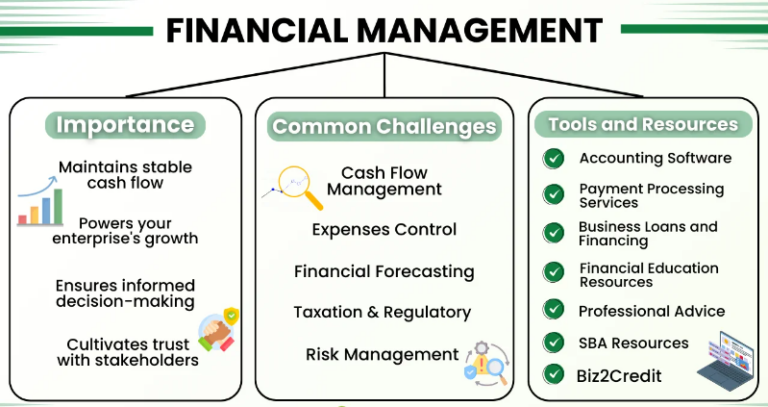Online MBA Programs are revolutionizing graduate business education, offering flexibility and accessibility to ambitious professionals worldwide. Forget stuffy lecture halls and rigid schedules; today’s online MBA programs leverage cutting-edge technology to deliver a rigorous, engaging, and personalized learning experience. This guide dives into the key aspects of these programs, helping you navigate the options and make an informed decision about your future.
From understanding curriculum variations and admission requirements to exploring learning methods, financial aid options, and career prospects, we’ll cover everything you need to know. We’ll also compare online MBA programs to traditional programs, highlighting the unique advantages of each. Ultimately, we aim to empower you with the knowledge to choose the path that best aligns with your individual goals and circumstances.
Program Structure & Curriculum
Online MBA programs offer a flexible alternative to traditional classroom-based programs, but their structure and curriculum can vary significantly. Understanding these variations is crucial for prospective students to choose a program that aligns with their career goals and learning style. This section will explore the typical structure and curriculum components of online MBA programs, highlighting key differences among leading providers.
Online MBA programs typically follow a structured format, although the specifics differ between institutions. A key aspect to consider is the balance between core business principles and specialized electives, allowing for personalized learning paths.
Curriculum Comparison Across Leading Online MBA Programs
The following table compares the curriculum variations across five leading online MBA programs (Note: Specific course titles and emphases may vary slightly from year to year. This table represents a general overview based on publicly available information as of late 2023. Always check the official program website for the most up-to-date details).
| Program Name | Core Curriculum Focus | Elective Options | Specializations Offered |
|---|---|---|---|
| Program A (Example: University of X) | Strong emphasis on quantitative analysis and finance. | Data analytics, entrepreneurship, sustainable business. | Finance, Marketing, Data Analytics |
| Program B (Example: University of Y) | Balanced approach covering all core business functions. | International business, supply chain management, healthcare management. | General Management, Strategy, Operations |
| Program C (Example: University of Z) | Focus on leadership development and strategic management. | Innovation management, digital transformation, project management. | Leadership, Technology Management, Consulting |
| Program D (Example: Institution W) | Emphasis on technology and innovation in business. | Artificial intelligence, cybersecurity, fintech. | Tech Management, Entrepreneurship, Fintech |
| Program E (Example: Institution V) | Balanced curriculum with a strong focus on ethical considerations in business. | Social impact, corporate social responsibility, global business ethics. | Sustainability, Social Entrepreneurship, Ethical Leadership |
Typical Structure of an Online MBA Program
A typical online MBA program requires completion of a specific number of credit hours, usually ranging from 48 to 60 credits. These credits are earned through a combination of core courses and elective courses. The program length generally spans 18 to 24 months, though accelerated programs may be completed in as little as 12 months. Course types typically include synchronous (live, real-time classes), asynchronous (self-paced learning modules), and blended learning formats, offering flexibility to students.
Core Curriculum Components
The core curriculum of an online MBA program typically covers fundamental business principles across various functional areas. These components provide a solid foundation for advanced studies and career advancement.
Common core courses include:
- Financial Accounting: Covers the principles of accounting, financial statement analysis, and budgeting.
- Managerial Accounting: Focuses on using accounting information for internal decision-making.
- Corporate Finance: Explores capital budgeting, financing decisions, and valuation.
- Marketing Management: Covers marketing strategies, consumer behavior, and market research.
- Operations Management: Deals with production planning, inventory control, and supply chain management.
- Strategic Management: Examines competitive advantage, strategic analysis, and implementation.
- Organizational Behavior: Studies individual and group behavior in organizations.
- Economics: Provides a foundational understanding of microeconomics and macroeconomics.
Admission Requirements & Application Process: Online MBA Programs
Getting into an online MBA program is a competitive process, but with careful planning and preparation, you can significantly increase your chances of acceptance. This section Artikels the typical application process and requirements, followed by a comparison of three leading universities. Remember, specific requirements vary by institution, so always check the individual university websites for the most up-to-date information.
The application process usually involves several key steps, and careful attention to detail is crucial at each stage. Prospective students should allocate sufficient time for each step to ensure a strong and competitive application.
Typical Application Process Steps
The application process generally follows a structured sequence. While specifics may vary, the following steps are common to most online MBA programs:
- Research and Selection: Identify programs aligning with your career goals and personal circumstances. Consider factors such as program structure, faculty expertise, and career services.
- Check Requirements: Carefully review the admission requirements for each program of interest. This includes GMAT/GRE scores, GPA, work experience, essays, letters of recommendation, and any other specific prerequisites.
- Prepare Application Materials: Gather all necessary documents, including transcripts, letters of recommendation, and your resume. Begin drafting your essays early, allowing ample time for revisions and feedback.
- Submit Application: Complete the online application form, ensuring accuracy and completeness. Submit all required materials before the application deadline.
- Interviews (if applicable): Some programs conduct interviews as part of the selection process. Prepare thoroughly for these interviews, practicing your responses to common questions.
- Decision and Enrollment: After the application review, you will receive a decision regarding your admission. If accepted, complete the enrollment process and prepare for your studies.
Common Admission Requirements
Most online MBA programs require a combination of academic achievement, professional experience, and demonstrated communication skills. These requirements are designed to assess a candidate’s readiness for the rigorous demands of the program.
- GMAT/GRE Scores: Many programs require GMAT or GRE scores, although some may offer waivers based on extensive work experience or exceptional academic records. Strong scores demonstrate quantitative and analytical abilities.
- Work Experience: Most programs require a minimum number of years of professional work experience, typically ranging from two to five years. This experience demonstrates practical application of knowledge and leadership potential.
- Undergraduate GPA: A strong undergraduate GPA is usually a prerequisite, reflecting academic excellence and preparation for graduate-level study. The specific GPA requirement varies between programs.
- Essays: Essays are crucial for showcasing your personal and professional goals, leadership experiences, and reasons for pursuing an online MBA. They provide a qualitative assessment beyond quantitative metrics.
- Letters of Recommendation: Letters of recommendation from supervisors or professors provide external validation of your skills and potential. These letters should highlight your strengths and suitability for the program.
Comparison of Application Processes
The application processes can differ significantly across universities. Here’s a comparison of three hypothetical universities (University A, University B, and University C) to illustrate these variations. Note that this is for illustrative purposes only and actual university requirements may vary.
- University A: Emphasizes GMAT/GRE scores and work experience. Requires three letters of recommendation and a detailed career goals essay. Offers rolling admissions, meaning applications are reviewed as they are received.
- University B: Places less emphasis on standardized test scores, potentially waiving the GMAT/GRE requirement for candidates with exceptional work experience and academic records. Focuses heavily on the applicant’s essays and interview performance. Has specific application deadlines.
- University C: Requires a strong undergraduate GPA and significant work experience. The application process includes a portfolio showcasing relevant projects and accomplishments. Prioritizes applicants with demonstrated leadership skills and community involvement. Follows a single application deadline.
Learning Methods & Technologies

Online MBA programs leverage a blend of learning methods and technologies to deliver a flexible and engaging educational experience. This approach aims to cater to the diverse needs and schedules of working professionals, while maintaining a high standard of academic rigor. The core methods and technologies used are designed to foster collaboration, facilitate knowledge acquisition, and promote a sense of community amongst students.Successful online MBA programs understand that a variety of learning styles exist.
Therefore, a multifaceted approach incorporating both synchronous and asynchronous activities is essential to accommodate different preferences and learning paces.
Synchronous and Asynchronous Learning
Synchronous learning involves real-time interaction between students and instructors. This typically takes the form of live online classes, webinars, or virtual office hours. Asynchronous learning, on the other hand, allows students to access materials and complete assignments at their own pace, outside of scheduled sessions. This flexibility is a key advantage of online learning, allowing students to balance their studies with work and personal commitments.
Many programs blend these approaches, utilizing synchronous sessions for interactive discussions and lectures, while relying on asynchronous methods for content delivery and independent study. For example, a program might offer a weekly live lecture followed by asynchronous assignments and discussion forums.
Technologies Used in Online MBA Programs
The effectiveness of online learning hinges on the technologies employed. Below is a table outlining some of the key technologies used in modern online MBA programs:
| Category | Technology Example | Functionality | Benefits |
|---|---|---|---|
| Learning Management System (LMS) | Canvas, Blackboard, Moodle | Course materials access, assignment submission, grade tracking, communication tools | Centralized hub for all course-related activities, improved organization and accessibility |
| Video Conferencing | Zoom, Microsoft Teams, Google Meet | Live lectures, virtual office hours, group projects, student interaction | Facilitates real-time interaction, mimics traditional classroom experience, enhances collaboration |
| Discussion Forums | Integrated into LMS or standalone platforms | Asynchronous discussions, peer-to-peer learning, knowledge sharing | Promotes active learning, facilitates collaboration, encourages diverse perspectives |
| Collaboration Tools | Google Docs, Microsoft SharePoint, Slack | Shared document editing, project management, team communication | Enhances teamwork, facilitates real-time collaboration on assignments, improves project efficiency |
Technology’s Impact on the Learning Experience
The technologies described above significantly enhance the online MBA learning experience. Learning Management Systems (LMS) provide a centralized and organized platform for accessing course materials, submitting assignments, and tracking progress. Video conferencing tools facilitate real-time interaction with instructors and peers, creating a more engaging and collaborative learning environment. Discussion forums encourage active learning and knowledge sharing, fostering a sense of community amongst students.
Finally, collaboration tools streamline group projects and improve teamwork, mirroring the collaborative nature of many real-world business scenarios. The combined effect of these technologies creates a rich and dynamic learning experience that rivals, and in some ways surpasses, the traditional classroom setting.
Cost & Financial Aid
Choosing an online MBA program involves a significant financial commitment. Understanding the cost and available financial aid options is crucial for making an informed decision. This section provides a clear overview of tuition fees and funding possibilities to help you budget effectively.
The cost of an online MBA program varies significantly depending on the university’s reputation, location, program length, and the specific curriculum. Factors like access to career services and networking opportunities also influence the overall value proposition, which should be considered alongside the price tag.
Tuition Fees
Tuition fees for online MBA programs span a wide range. The following examples illustrate this variability. Note that these figures are estimates and can change, so always check directly with the university for the most up-to-date information.
- Prestigious Private Universities: $100,000 – $150,000+ (e.g., some top-ranked business schools offering online MBA programs).
- Well-Regarded Public Universities: $50,000 – $100,000 (e.g., many state flagship universities with strong online programs).
- Smaller Private Universities or Specialized Programs: $30,000 – $70,000 (e.g., institutions focusing on specific industries or management styles).
Financial Aid Options
Securing funding for your online MBA doesn’t have to be daunting. Several avenues exist to help offset the cost of tuition and other expenses. Exploring these options diligently can make a significant difference.
- Scholarships: Many universities offer merit-based and need-based scholarships specifically for online MBA students. These often require a competitive application process, including strong academic records and compelling personal statements. Some scholarships might target specific demographics or professional backgrounds.
- Grants: Government and private organizations provide grants to support graduate education. Eligibility criteria vary widely, and researching relevant grants is essential. Many grants prioritize students from underrepresented groups or those pursuing studies in specific fields.
- Loans: Federal and private student loans are readily available for graduate studies. Federal loans generally offer more favorable interest rates and repayment plans than private loans. Carefully compare loan terms and interest rates before borrowing.
- Employer Sponsorship: Some employers offer tuition reimbursement or assistance programs for employees pursuing advanced degrees. Check with your HR department to explore this possibility.
Total Cost of Attendance Comparison
The table below compares the estimated total cost of attendance for three hypothetical online MBA programs. Remember that these are estimates, and actual costs may vary.
| Program | Tuition | Fees | Living Expenses (Annual) |
|---|---|---|---|
| Program A (Prestigious Private) | $120,000 | $5,000 | $20,000 |
| Program B (Public University) | $60,000 | $2,000 | $15,000 |
| Program C (Smaller Private University) | $40,000 | $1,000 | $12,000 |
Career Outcomes & Networking

An online MBA can significantly boost your career prospects, opening doors to a wide range of opportunities across various industries. Graduates often experience promotions, salary increases, and transitions into more senior roles, leveraging the enhanced skills and broadened network gained during their studies. The flexibility of online learning also allows professionals to pursue advanced degrees without disrupting their current employment.The skills honed in an online MBA program—strategic thinking, data analysis, financial management, and leadership—are highly valued across sectors.
This translates to increased employability and better negotiation power in the job market. Many online MBA programs also offer career services to help graduates navigate their career transitions and achieve their professional goals.
Career Paths for Online MBA Graduates
Online MBA graduates pursue diverse career paths depending on their prior experience and aspirations. Common career trajectories include senior management roles in various sectors like finance, technology, healthcare, and non-profit organizations. Many graduates transition into consulting, entrepreneurship, or project management positions, leveraging the strategic and analytical skills developed during the program. Specific roles can include Chief Financial Officer (CFO), Chief Operating Officer (COO), Marketing Director, or Program Manager, among many others.
The versatility of the MBA equips graduates to handle diverse responsibilities and challenges in their chosen fields.
Examples of Successful Career Transitions
Consider the example of Sarah, a marketing manager who completed an online MBA. Her enhanced analytical skills enabled her to develop more effective marketing strategies, leading to a significant increase in sales for her company. This achievement resulted in a promotion to Marketing Director within a year of graduation. Another example is John, a mid-level engineer who, after completing his online MBA, transitioned into a project management role, utilizing his newly acquired leadership and strategic planning skills to successfully manage complex engineering projects.
These are just two illustrations of how an online MBA can facilitate impactful career changes.
Networking Opportunities for Online MBA Students
Online MBA programs offer robust networking opportunities, despite the virtual learning environment. Many programs facilitate online networking events, virtual study groups, and online forums where students can connect with peers, faculty, and alumni. These interactions allow for the exchange of ideas, professional insights, and potential career collaborations. Access to an online alumni network provides ongoing support and connection with successful professionals, opening doors to mentorship opportunities and job leads.
Furthermore, many programs incorporate team-based projects, providing valuable opportunities for collaboration and networking among students with diverse backgrounds and professional experiences.
Accreditation & Program Rankings

Choosing an online MBA program requires careful consideration of several factors, and accreditation and program rankings play a crucial role in assessing the program’s quality and reputation. Understanding the significance of accreditation and how rankings are compiled will help prospective students make informed decisions. This section clarifies the importance of accreditation and provides insights into how leading online MBA programs are ranked.Accreditation signifies that a program meets certain quality standards and is recognized by relevant educational bodies.
Rankings, while subjective and based on various methodologies, offer a comparative overview of programs based on factors like faculty, curriculum, career services, and student satisfaction. Both accreditation and rankings contribute to the overall perception and value of an online MBA degree.
Accreditation Bodies for Online MBA Programs
Several organizations accredit online MBA programs, each with its own set of criteria. Accreditation is not a uniform process, and the prestige of different accrediting bodies can vary. Choosing a program with appropriate accreditation is a key step in ensuring the quality and legitimacy of your degree. Some of the most prominent accreditation bodies include the Association to Advance Collegiate Schools of Business (AACSB), the Association of MBAs (AMBA), and the European Quality Improvement System (EQUIS).
AACSB accreditation, for example, is widely recognized as a mark of excellence in business education, signifying rigorous standards in curriculum, faculty, and resources. AMBA and EQUIS focus on a more international perspective and emphasize the quality of the learning experience. Accreditation by one or more of these bodies indicates a higher level of program quality.
Top-Ranked Online MBA Programs
Various ranking organizations publish lists of top online MBA programs, using different methodologies and weighting factors. These rankings should be viewed as one factor among many in the decision-making process, rather than the sole determinant. The rankings are dynamic and can change from year to year. It’s crucial to understand the criteria used by each ranking organization to interpret the results accurately.
- U.S. News & World Report: This publication consistently ranks online MBA programs based on factors like student selectivity, faculty resources, and career outcomes. Their ranking methodology is transparent and publicly available, allowing for a clear understanding of how programs are evaluated.
- Financial Times: The Financial Times also ranks online MBA programs, focusing on factors like career progression, salary increases, and the diversity of the student body. Their rankings often highlight international programs and emphasize the global perspective of the MBA experience.
- The Princeton Review: The Princeton Review uses a different methodology, incorporating student surveys and program data to create its rankings. Their focus often includes aspects like student satisfaction and the quality of the learning experience.
Note that specific program rankings change annually, and a comprehensive list requires referencing the most current publications from these organizations. Each ranking should be viewed within the context of its specific methodology.
Importance of Accreditation When Choosing an Online MBA Program
Accreditation provides assurance of program quality and legitimacy. Employers often prioritize candidates with degrees from accredited institutions, recognizing the rigorous standards these programs must meet. An accredited program demonstrates a commitment to excellence in teaching, curriculum, and overall educational experience. Choosing an unaccredited program carries a higher risk of lower quality education and potential challenges in career advancement.
Therefore, verifying accreditation should be a critical step in the selection process. An accredited program typically undergoes regular reviews and evaluations, ensuring consistent quality and continuous improvement. This process provides a level of accountability that is often absent in unaccredited programs.
Program Flexibility & Support
Online MBA programs are designed to cater to the diverse needs of working professionals, offering a level of flexibility rarely found in traditional programs. This flexibility extends beyond just scheduling, encompassing a supportive learning environment that helps students succeed despite their busy lives and other commitments. The combination of flexible scheduling and robust support systems is key to the success of online MBA programs.Flexibility in online MBA programs is a significant advantage for many students.
The ability to learn at your own pace and on your own schedule is a major draw for those juggling careers, families, and other responsibilities. This often translates to more manageable workloads, allowing students to better integrate their studies with their existing commitments.
Scheduling Flexibility
Many online MBA programs offer asynchronous learning, meaning that coursework doesn’t have set times for lectures or discussions. Instead, students can access materials and participate in activities whenever it’s convenient for them, within established deadlines. This flexibility allows students to fit their studies around their work schedules, family obligations, and other personal commitments. For example, a student working a demanding 9-to-5 job can review course materials in the evenings or on weekends, allowing for a more balanced lifestyle.
Some programs also offer synchronous elements, such as live online sessions, but these are often optional or scheduled to accommodate a variety of time zones.
Learning Pace Flexibility
While deadlines exist, the pace at which students progress through the coursework is often more flexible than in traditional programs. Students can adjust their study schedule to accommodate periods of increased workload or personal demands. This adaptability is crucial for managing the demands of both professional and academic life. For instance, a student experiencing a particularly busy period at work can slow down their study pace temporarily, catching up later without significant penalty, provided they meet the overall program deadlines.
Support Services for Online MBA Students
Online MBA programs recognize the challenges of distance learning and offer a range of support services designed to help students succeed. These services are not merely supplemental; they are integral to the program’s design and are viewed as critical components of student success.
Academic Advising
Academic advisors provide personalized guidance to students, helping them navigate the curriculum, choose appropriate electives, and develop a study plan that aligns with their career goals. They are a valuable resource for addressing academic challenges and ensuring students stay on track to graduate. Regular check-ins and proactive communication are common features of this support.
Career Counseling
Career services are a crucial aspect of many online MBA programs. These services provide assistance with resume writing, job searching, networking, and interview preparation. Career counselors often have extensive experience in the business world and can provide valuable insights into career paths and industry trends. Many programs also offer access to alumni networks, providing valuable connections for career advancement.
Technical Support
Given the reliance on technology in online learning, robust technical support is essential. This support can address issues related to accessing course materials, using learning platforms, or troubleshooting technical difficulties. Prompt and effective technical support minimizes disruptions to the learning process and ensures students can focus on their studies.
Student Forums and Communities
Many online MBA programs foster a sense of community through online forums and discussion boards. These platforms provide opportunities for students to connect with their peers, share experiences, and collaborate on projects. This sense of community can be particularly important for students who may feel isolated in a distance learning environment. The interaction also provides peer-to-peer learning and support.
Comparison with Traditional MBA Programs
Choosing between an online and a traditional MBA program is a significant decision, hinging on individual circumstances, career goals, and learning preferences. Both pathways offer a valuable credential, but their delivery methods and associated experiences differ substantially, impacting the overall value proposition. Understanding these differences is crucial for making an informed choice.The decision of whether to pursue an online or traditional MBA program depends heavily on individual circumstances and priorities.
Both options lead to the same MBA degree, but the learning experience, cost, and flexibility vary considerably.
Advantages and Disadvantages of Online vs. Traditional MBA Programs
The following points highlight the key advantages and disadvantages of each program type, offering a balanced perspective to aid in decision-making.
- Online MBA Advantages: Flexibility, affordability (often lower tuition and fewer relocation costs), accessibility (geographical limitations removed), self-paced learning (for some programs), technological proficiency development.
- Online MBA Disadvantages: Less direct interaction with professors and peers, potential for isolation, self-discipline required, technological dependence, limited access to campus resources and networking events.
- Traditional MBA Advantages: Immersive learning environment, strong peer networking, direct access to professors and campus resources, structured learning schedule, immediate feedback and collaboration opportunities.
- Traditional MBA Disadvantages: High cost (tuition, relocation, living expenses), inflexibility (requires relocation and a rigid schedule), limited accessibility (geographical limitations), less self-paced learning.
Situations Favoring an Online MBA
An online MBA is often the better choice for individuals facing specific circumstances. For example, individuals with demanding jobs, family responsibilities, or geographical constraints find the flexibility of online programs invaluable.
- Professionals with established careers: Continuing to work while pursuing an MBA is easier with an online program, allowing for skill enhancement without career disruption. A marketing manager, for example, can apply newly acquired knowledge directly to their current role while completing their studies.
- Individuals with family responsibilities: Online programs offer the flexibility to balance education with childcare and other family commitments. A parent managing a household and young children can tailor their study schedule around their family’s needs.
- Students in geographically remote areas: Access to quality education is significantly improved through online MBA programs, eliminating the need to relocate to a specific city for studies.
- Individuals with budget constraints: Online programs often have lower tuition fees and eliminate the additional costs associated with relocation and campus living.
Learning Environment and Networking Differences
The learning environment and networking opportunities are vastly different between online and traditional MBA programs.
In a traditional MBA program, the learning environment is highly interactive. Imagine bustling classrooms filled with engaged students, lively discussions during lectures, and collaborative group projects taking place in dedicated study spaces. Networking happens organically – during coffee breaks, study sessions, social events, and even impromptu hallway conversations. The sense of community is palpable, fostering strong bonds between classmates and professors.
Alumni networks are often robust and readily accessible, providing valuable career connections for years to come.
In contrast, an online MBA program offers a more independent learning experience. While many programs incorporate virtual group projects and online discussion forums, the level of spontaneous interaction is reduced. Networking requires more proactive effort, often relying on online platforms and virtual events. While strong relationships can still form, the level of organic, informal interaction found in a traditional setting is generally less pronounced.
However, the global reach of online programs can open doors to networking with individuals from diverse geographical locations and professional backgrounds.
Closure
Embarking on an Online MBA program is a significant step, demanding careful consideration and planning. However, with the right information and a clear understanding of your aspirations, you can successfully navigate the process and unlock new career opportunities. Remember, the flexibility and accessibility of online programs shouldn’t compromise quality; many top-tier institutions offer excellent online MBA programs that provide a world-class education.
By carefully weighing your options and leveraging the resources available, you can confidently pursue your MBA goals and build a successful future.
FAQ Compilation
Can I get an online MBA with limited work experience?
While some programs prefer candidates with significant work experience, many accept applicants with less experience, particularly if they demonstrate strong academic credentials and potential.
How long does it take to complete an online MBA?
Program lengths vary, but many can be completed in 18-24 months, though some accelerated programs might be shorter.
Are online MBA degrees as valuable as traditional MBAs?
From a reputable institution, an online MBA holds equal weight to a traditional MBA in the eyes of many employers. The value depends more on the program’s accreditation and your performance.
What if I need help with the coursework?
Most programs provide robust student support services, including access to academic advisors, online tutoring, and peer-to-peer learning communities.
How do I network in an online MBA program?
Many programs facilitate networking through online forums, virtual events, and collaborative projects, often connecting students with alumni networks.





